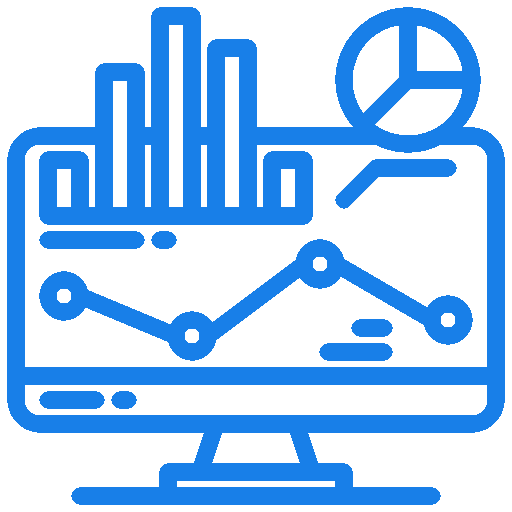Artificial Intelligence in Banking
Various technologies have long been used in the financial sector. However, the use of AI in banking can drive innovation faster and further than before. Banking data science development services can help to enhance efficiency, stimulate differentiation, manage risks and regulatory needs. On top of it, AI technology can dramatically improve customer experience.
Artificial intelligence (AI) has been continuously developing over the last few decades. It becomes more powerful and useful, and many new fascinating applications appear every year. Due to the fantastic benefits it offers, AI is now used everywhere: from robotics to medicine. Various technologies have long been used in the financial sector. However, the use of AI in banking can drive innovation faster and further than before.
AI TRANSFORMS THE BANKING INDUSTRY
How AI is used in banking and fintech – potential use cases
Customer Support
Description: Customer support is a critical part of any business. Many clients encounter problems and need professional help. Quick and proper advice will help the client and show them that they are important for the company.
Influence on business: Many questions asked by clients already have answers, so it would be a waste of workers’ time to answer manually. Chatbots can be used instead to answer general questions and give advice. Similarly, a trouble ticket classification system can save employees from routine work and the company – from unnecessary costs.
Benefits: Reduced time, costs, and the number of routine tasks.
Complexity: 1 (low)
Data needed: Previous conversations with clients, customers’ feedback, classified trouble tickets.
Examples: Chatbots, trouble tickets classification, feedback analysis.
Legal Documents Tracking
Description: New laws and regulations appear all the time. They are long and usually hard to read. Hiring a lawyer may be one solution but, just like any other human being, lawyers can make mistakes. Therefore, more and more companies are considering using AI to work with legal documents.
Influence on business: Missing an important new rule or law may lead to unpleasant consequences. It is, therefore, vital to track any changes in legislation and react accordingly. Artificial intelligence and natural language processing, in particular, can effectively and quickly search for any changes in legislation. It can then evaluate the company’s processes and decide on needed adjustments. All of this would be done without the errors all humans tend to make.
Benefits: Reduced time.
Complexity: 2 (below average)
Data needed: Legal documents.
Examples: Tracking new legal documents, monitoring changes, extracting the most important guidelines, notifying the management, document classification.
Risk Analysis
Description: Financial activity is always connected with risks. Whether it is a risk of giving credit to an untrustworthy individual or a risk of buying some bonds – AI can help.
Influence on business: Without careful consideration of possible risks, the company is likely to make dangerous decisions that may have negative payoffs. Just like in the case of predictive analytics , risk evaluation can help make better decisions. The company can choose the safest course action or the one that is the most promising.
Benefits: Increased security, reduced costs.
Complexity: 3 (average)
Data needed: Personal clients’ information, a history of the company’s operations.
Examples: Credit scoring, risk evaluation.
Predictive Decision-Making Analytics
Description: We live in an ever-changing world, and it is almost impossible to know, for sure, what will happen tomorrow. Constant changes in customers’ expectations and tastes lead to instability and unpredictability. Fortunately, there is AI, which can effectively predict such things as sales or client churn. Thanks to AI’s powered simulations, a company can adjust its processes to better match future challenges .
Influence on business: A company that makes its decisions blindly is destined to fail. In the modern world, the most successful companies rely on data-driven decisions. This allows them to predict any future outcomes and take corresponding actions. AI provides a powerful predictive mechanism that enables companies to model future outcomes and choose the best development path.
Benefits: Better strategy, reduced costs.
Complexity: 4 (above average)
Data needed: All kinds of financial data available, a history of financial operations.
Examples: Running multi-scenario analysis to plan for long-term growth, forecast market outcomes/changes
Digital Financial Coach
Description: There are lots of discussions surrounding Siri or Alexa, but there is also another type of digital assistant available – financial advisor. Such business robots are a common use case of artificial intelligence in the financial domain. Such financial coaches are getting better and gaining popularity due to their unbiased nature and high accuracy.
Influence on business: Many people do not have a financial education and encounter troubles while managing finances. A simple mistake caused by a misunderstanding of the economic situation may lead to huge losses. Financial assistants can diminish such dangers.
Benefits: Better strategy, optimized budget.
Complexity: 4 (above average)
Data needed: Clients’ personal information, a history of users’ operations and accounts, real-time data about the economic environment.
Examples: Dividends and savings management, verifying notifications, advice on possible investments, financial activity analysis.
Personalization
Description: It is a known fact that the recommendation engine generates 35% of Amazon’s revenue. Similarly, more than 75% of all content watched on Netflix comes from personalized recommendations. Personalization is a powerful tool for an organization of any type and finance is not an exception. Recommending new products and services, individual conditions, and discounts are only some of the many possible examples of personalization.
Influence on business: Without any personalized recommendations, a company risks losing potential purchases. Untargeted advertising may be ineffective and even lead to customers’ annoyance. Many of them may prefer to switch companies, which is an apparent loss. Personalization increases customers’ satisfaction and loyalty, which, in turn, increases the company’s reputation and strengthens its relationship with clients.
Benefits: Increased sales, client satisfaction, and loyalty, reduced churn.
Complexity: 4 (above average)
Data needed: A history of clients’ purchases, clients’ personal information.
Examples: Recommendations of products and services, clients’ interest detection.
Fraud Detection
Description: The financial sector has always been tempting for scammers. With the transition of finance activity online, most of the dangers have moved there as well. Luckily, the security does not stand still. The role of artificial intelligence in fraud detection and prevention rises steadily. According to various studies, very little out of fraud losses can be recovered. It is therefore vital to prevent any illegal activities beforehand. Without adequate security measures, any finance organization will sooner or later lose its clients and go bankrupt.
Influence on business: Machine learning models allow companies to foresee fraudulent activities and prevent them. This, in turn, helps the banks and financial companies build a trusted and safe organization and clients will undoubtedly choose secure organizations over others.
Benefits: Reduced money loss, increased security.
Complexity: 5 (high)
Data needed: A history of clients’ transactions, clients’ personal information, legal documents (laws, rules, regulations).
Examples: Suspicious behavior and transactions detection, anti-money laundering, document forgery detection, individual information verification, security notification, protection against hacking attacks.
What clients and partners say about us

Olga Shevchenko
CEO, EVA

Jake Diner
Founder and CEO, Elafris Inc

Oleg Bilozor
CEO and Founder, Reply

Michael Korkin, Ph.D.
CTO at Entropix, Inc.
How to start?
Employing Artificial Intelligence in banking has already changed the industry. Nonetheless, the real disruption is yet to come. The use of AI in banking can reframe the industry completely. For instance, banking data science challenges conventional cost structures, making new relationships with customers possible. Those who haven’t yet embraced artificial intelligence as the industry’s future have to act as soon as possible. Executives looking to implement AI in banking should remember the three guiding principles:
- Data comes first. Implementing Artificial Intelligence in banking has to begin with examining the quantity, type, and quality of available data. This step will give some idea for relevant and feasible use cases. But even if your business doesn’t have the data to pursue some Artificial Intelligence use cases in banking, don’t give up. Studying public data sources or looking for partners with necessary data are possible solutions. The use of machine learning in banking can start with a data collection strategy. It may be adding digital trackers to analog processes or designing a consumer-facing product to serve as a data harvester.
- Implementing AI in banking starts with small projects. Don’t rush into complex AI banking use cases to get as much value as possible. Start small and release an application sooner. You can build on it over time. Artificial Intelligence in banking can be scaled, so your company will get more and more benefits.
- Failure is not the end. ML development services can be particularly challenging. Social stigmatization of this technology is the first thing to overcome. Banking data science requires interdisciplinary collaboration, time, and investments to be effective. If you look into any Artificial Intelligence in banking case study, you will notice that the road to success often lies through failure. The “fail fast, fail early” thinking helps to keep your expenditures under control.
The use of AI in banking and fintech: summary
The penetration of machine learning in banking can have a lasting impact on this industry. Legacy data systems served well in the past, but they aren’t the best choice for the future.
Today AI in banking examples are far from being science fiction. The technology is making its way into the mainstream. Despite some significant operational and organizational challenges, there are more and more machine learning use cases in banking. Financial organizations recognize the benefits of advanced technologies and rely upon them.
In the long term, banks’ competitive features could depend on the successful implementation of AI. Therefore, accelerated modernization is a must for enterprises, which want to be in the future top league.
FAQ
How are AI and Data Science used in banking?
Examples of AI in banking include chatbots, legal document tracking systems, tools for risk analysis, and generating personalized recommendations.
How is artificial intelligence changing the banking sector?
The AI helps bankers to communicate with customers, assess risks and get more accurate predictions. Therefore, they can make better decisions.
What is Artificial Intelligence in finance?
AI improves the stability of financial organizations through better risk management. Besides, it facilitates the creation of personalized products and fosters financial education.





